Alpha Man: The Brotherhood of MLK is a american film
Alpha Man: The Brotherhood of MLK (2011)
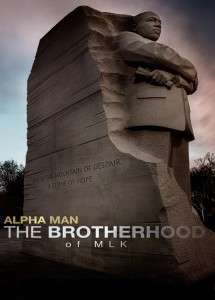
If you like this film, let us know!
Alpha Man: The Brotherhood of MLK is a television documentary film that reveals the story of Dr. Martin Luther King, Jr.’s fraternity days as a member of Alpha Phi Alpha fraternity. Produced by Rainforest Films, the half-hour special originally aired August 28, 2011 on Black Entertainment Television (BET). The documentary special was scheduled to debut on the same day as the much-anticipated official dedication of the Martin Luther King, Jr. Memorial statue on the National Mall in Washington, D.C.. The statue's dedication, which was to coincide with the 48th anniversary of the March on Washington and Dr. King’s “Dream” speech, was postponed until October 16, 2011 due to Hurricane Irene.
^ http://www.eurweb.com/2011/08/hurricane-threatens-mlk-memorial-dedication-bet-unveils-king-programming/
^ Associated Press (August 25, 2011). "Dedication of MLK Memorial postponed by hurricane". USA Today. Retrieved 2011-08-25.
^ Weil, Martin (2011-09-11). "MLK memorial dedication set for Oct. 16". Post Local (The Washington Post). Retrieved 2011-09-12.
^ Associated Press (2011-09-14). "New date set for MLK memorial dedication". CBSNEWS. Retrieved 2011-09-14.
Synopsis
Alpha Man: The Brotherhood of MLK tells the little-known story of Dr. Martin Luther King, Jr. fraternity days as a member of the country’s first collegiate black fraternity, Alpha Phi Alpha. Hosted and narrated by Hill Harper, the film gives first hand accounts by King's associates and follows Dr. King from a 23-year-old divinity student in Boston and 1952 Alpha pledgee to Nobel Prize-winner and leading civil rights pioneer. The documentary also includes never been heard excerpts from Dr. King speaking at the 50th Anniversary of the Alpha Phi Alpha Fraternity, the first and only time he spoke at an Alpha convention.Comments
Leave comment :
Suggestions of similar film to Alpha Man: The Brotherhood of MLK
There are 2797 films with the same themes (including 197 films with the same 2 themes than Alpha Man: The Brotherhood of MLK), to have finally 70 suggestions of similar films.If you liked Alpha Man: The Brotherhood of MLK, you will probably like those similar films :
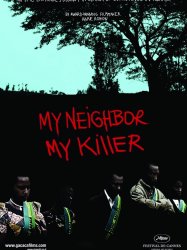
My Neighbor, My Killer (2009)
, 1h20Directed by Anne Aghion
Origin France
Genres Documentary
Themes Films set in Africa, Films about racism, Documentary films about racism, Documentary films about law, Documentary films about war, Documentary films about historical events, Documentaire sur une personnalité, Documentary films about politics, Political films
Rating75%





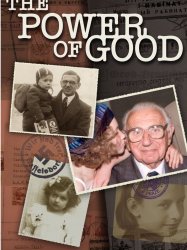 , 1h4
, 1h4Directed by Matej Mináč
Genres Documentary
Themes Films about racism, Films about religion, Documentary films about racism, Documentary films about law, Documentary films about war, Documentary films about historical events, Documentaire sur une personnalité, Documentary films about religion, Political films, Films about Jews and Judaism, Documentary films about World War II
Actors Karel Reisz
Rating81%





Partez à la rencontre de Nicholas Winton, véritable héros d'avant-guerre. Jamais considéré comme tel, cet homme a pourtant sauvé 669 enfants à la veille de la Seconde Guerre mondiale. Dans la capitale tchécoslovaque, alors qu´il se préparait pour des vacances au ski, le jeune Nicholas Winton va organiser une extraordinaire opération de sauvetage d'enfants juifs menacés par les nazis.

Marion's Triumph (2003)
, 50minutesGenres Documentary
Themes Films about children, Films about racism, Films about religion, Documentary films about racism, Documentary films about law, Documentary films about war, Documentary films about historical events, Documentaire sur une personnalité, Documentary films about religion, Political films, Films about Jews and Judaism, Documentary films about World War II
Actors Debra Messing
 , 30minutes
, 30minutesOrigin USA
Genres Documentary
Themes Films about racism, Documentary films about racism, Documentary films about law, Documentaire sur une personnalité
In the mid-1940s, a tenant farmer named Gonzalo Mendez moved his family to the predominantly white Westminster district in Orange County and his children were denied admission to the public school on Seventeenth Street. The Mendez family move was prompted by the opportunity to lease a 60-acre (240,000 m) farm in Westminster from the Munemitsus, a Japanese family who had been relocated to a Japanese internment camp during World War II. The income the Mendez family earned from the farm enabled them to hire attorney David Marcus and pursue litigation.
 , 52minutes
, 52minutesGenres Documentary
Themes Films about slavery, Films about racism, Documentary films about racism, Documentary films about law, Documentary films about war, Documentary films about historical events, Documentaire sur une personnalité, Political films, Disaster films
Frederick Douglass and the White Negro is a documentary telling the story of ex-slave, abolitionist, writer and politician Frederick Douglass and his escape to Ireland from America in the 1840s. The film follows Douglass' life from slavery as a young man through to his time in Ireland where he befriended Daniel O'Connell, toured the country spreading the message of abolition and was treated as a human being for the first time by white people. His arrival in Ireland coincided with the Great Famine and he witnessed white people in what he considered to be a worse state than his fellow African Americans back in the US. The film follows Douglass back to America where he buys his freedom with funds raised in Ireland and Britain. Fellow passengers on his return journey include the Irish escaping the famine who arrive in their millions and would go on to play a major role in the New York Draft Riot of 1863 which Douglass could only despair over. The film examines (with contributions from the author of How The Irish Became White Noel Ignatiev amongst others) the turbulent relationship between African Americans and Irish Americans during the American Civil War, what drew them together and what drove them apart and how this would shape the America of the twentieth century and beyond.
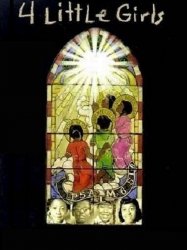
4 Little Girls (1997)
, 1h42Directed by Spike Lee
Origin USA
Genres Documentary, Historical
Themes Films about racism, Films about terrorism, Documentary films about racism, Documentary films about law, Documentary films about war, Documentary films about historical events, Documentaire sur une personnalité, Documentary films about politics, Documentary films about terrorism, Political films
Actors Ossie Davis, Spike Lee, Bill Cosby, Walter Cronkite
Rating77%





Film documentaire, 4 little girls revient sur l'attentat à la bombe dans une église afro-américaine qui, en 1963, tua quatre fillettes âgées de 11 à 14 ans.

Flower in the Gun Barrel (2008)
Origin USA
Genres Documentary
Themes Films set in Africa, Films about racism, Documentary films about racism, Documentary films about law, Documentary films about war, Documentary films about historical events, Documentaire sur une personnalité, Documentary films about politics, Political films
Rating80%





To a large extent, the film consists of interviews with genocide survivors, many of whom were children in 1994. In all, over thirty survivors, perpetrators, and experts were interviewed for the film. In these interviews, the survivors discuss what it means to be a Rwandan and to live next door to people who killed their families. The survivors describe how they deal with their country's request that they forgive one another and move on, so that Rwanda can rebuild and unify itself. Perpetrators' views illuminate the madness that seized the culture in 1994; exploring the experience of apologizing to victims, and examining what it is like to be looked at as a murderer in Rwandan society.
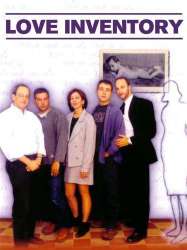
Love Inventory (2000)
, 1h30Genres Documentary
Themes Films about families, Films about racism, Films about religion, Documentary films about racism, Documentary films about law, Documentary films about war, Documentary films about historical events, Documentaire sur une personnalité, Documentary films about religion, Political films, Films about Jews and Judaism, Documentary films about World War II
Rating69%





After the death of their parents, Filmmaker David Fisher feels that his family has grown apart and that his siblings are focused on their careers and relationships with their spouses and children. Fisher believes that a search for their sister, who was allegedly taken from their parents at birth, will help them bond.
 , 2h20
, 2h20Directed by Matt Reaves
Origin USA
Themes Films about racism, Documentary films about racism, Documentary films about law, Documentaire sur une personnalité

The Killing of the Imam (2010)
, 10minutesOrigin South africa
Genres Documentary
Themes Films set in Africa, Films about racism, Documentary films about racism, Documentary films about law, Documentaire sur une personnalité, Documentary films about politics, Political films
In 1969, Imam Abdullah Haron was incarcerated and killed in detention in Cape Town, South Africa. A much loved community leader, he was active within an inactive community in raising awareness of the plight of his compatriots living under apartheid. During the 60s, Imam Haron became more active and began travelling abroad to raise funds for impoverished families back home. Mixing animation, documentary and stock footage, this short film looks at the last few years of the Imam's life and death. It is told by his grandson, the filmmaker, through the eyes of a child.
 Connection
Connection